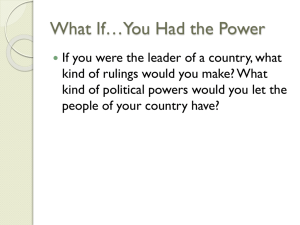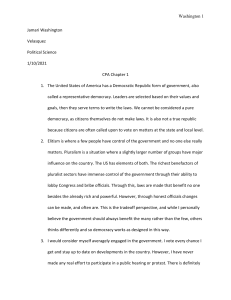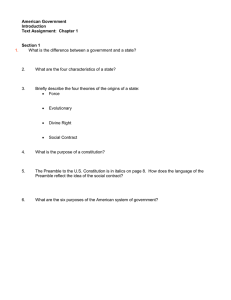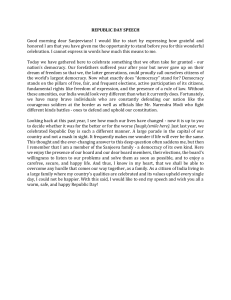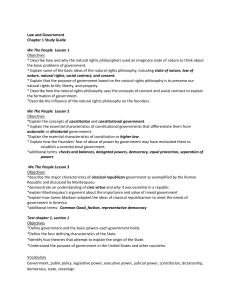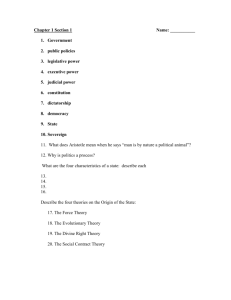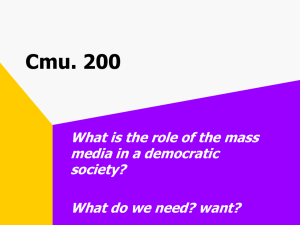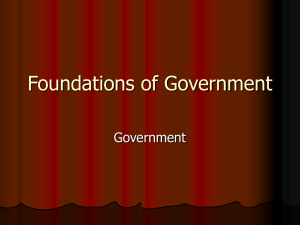Formation & Types of Governments Types of Government Systems
advertisement
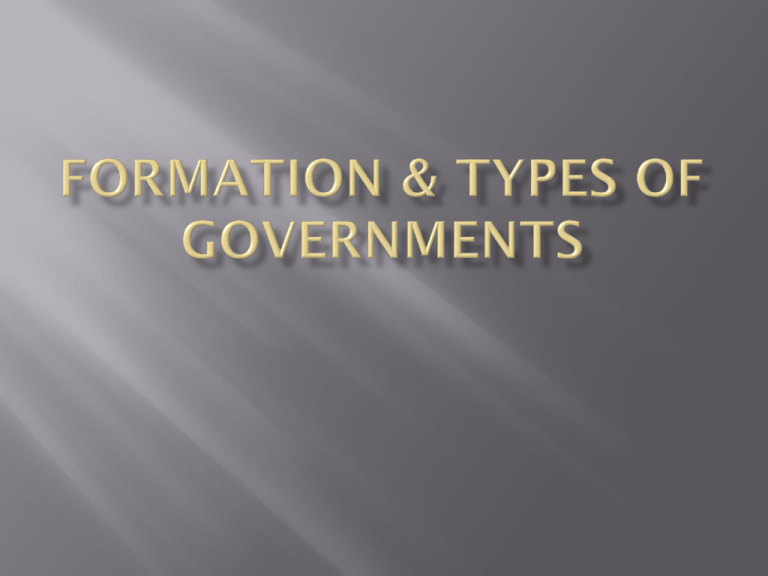
1st thing we will look at is how governments are broken into regional systems Unitary System Federal System Confederacy All key powers are located in the national or central governments Does not mean just one level of government, rather central government has the power to create lower levels Example: Great Britain Divides government between a national and/or state/provincial governments Each level of government has power with National powers being supreme Ex- United States of America Loose union of independent states Power is controlled by local/state governments with little power given to a central government No modern example, The United States tried this under the Articles of Confederation. A plan that provides the rules for government Ideals that the people bound by the constitution believe in and share It establishes the basic structure of government and defines the government’s powers and duties It provides the supreme law for the country Principles of Government Autocracy Oligarchy Democracy Principles of Government Power and authority to rule held by one person Totalitarian dictatorships (examples…) Monarchies- Absolute & Constitutional (examples…) Pros & Cons… Principles of Government Power and authority to rule is held by a small group of individuals (Examples…) Principles of Government From the Greek demos (people) and kratia (to rule). Thus ~ rule by the people Too simple & naïve Democracy is a system of government in which people select policy makers so that policies reflect the will of those governed. (explain…) Principles of Government Direct democracy allows the people the authority to govern themselves directly People make and vote on policies in forums Only exist in small communities today Principles of Government Representative democracy people select representatives and give them authority to make laws and run the government Also known as: republic, indirect democracy and constitutional republic Still in all, power ultimately rests with the public Legitimacy and Revolution?

